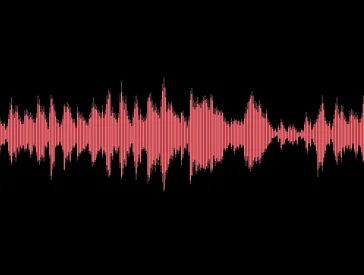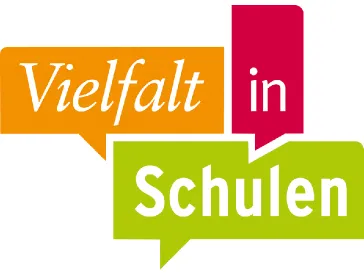Educational Theater: Methods and Approaches for Educators in Schools and Museums
Working Group Report
Educational theater provides teachers and museum educators with methods that go beyond theater productions or the performing arts as a subject in schools. Providing a glimpse of the theatrical work at three schools in Berlin and the collaboration between the Jewish Museum Berlin and the Berlin University of the Arts, this workshop illustrated approaches to educational theater for schools and museums. After the individual presentations, the participants discussed the opportunities, goals, and challenges defining practical educational work with diverse groups of students.
The working group was led by Dr. Diana Dressel, Jewish Museum Berlin, with contributions by:
- Laura Söllner, educational theater specialist, Berlin
- Anja Scheffer, actress and director
- Heidemarie Link, B. Traven Secondary School, Berlin
- Eva Albert, Hermann Hesse School, Berlin
Laura Söllner: On the Collaboration between the Jewish Museum Berlin and the Berlin University of the Arts
Students in the second year of the master’s program in educational theater selected the following six books from VielSeitig (ManySided), a brochure about diversity in children’s literature produced by the Education department of the Jewish Museum Berlin:
- Farideh Chalatbarie/Bahar Achavan: Der Schakal am Hof des Löwen: Eine moderne iranische Fabel (The Jackal at the Lion’s Court: A Modern Iranian Fairytale)
- Shaun Tan: The Arrival, graphic novell
- Mirjam Pressler: Nathan und seine Kinder (Nathan and His Children), novel
- Paula Bulling: : Im Land der Frühaufsteher (In the Land of the Early Risers), graphic novel
- Monika Helfer and Michael Kölmeier: Rosie und der Urgroßvater (Rosie and Her Great-Grandfather), novel
- Alexandra Maxeiner and Anke Kuhl (illustrator):Alles Familie (Everyone Is Family), picture book
A one-day workshop was developed for each book and tailored to the different target groups and genres – whether picture book, novel, or graphic novel. The six workshops incorporated a variety of educational theater techniques, such as creative writing, play reading, costume work, object theater, and other theatrical forms. The workshops were held with different school classes, prospective educators, and teachers in November and December 2013.
Anja Scheffer: The Drama Program at the Refik Veseli School in the District of Kreuzberg in Berlin
The Refik Veseli School is a secondary school in Kreuzberg, Berlin, that currently does not offer an Abitur. A large percentage of students require additional language support in German.
As part of the program “Cultural Agents for Creative Schools,” Silke Ballath, a “cultural agent” herself, and Anja Scheffer, an actress and director, worked with teaching staff to develop a theatrical program for the school. It is based on the school’s two main pillars, language learning and Germany’s two-track vocational education system. It covers:
- Acting: text development, scene work, improvisation
- • Set and costume design: design, skilled manual labor
The program was launched in spring 2013 with a four-week pilot project in one of the school’s seventh grade classes (for ages 12–13). We developed the concept in cooperation with set and costume designer Hendrik Scheel and with the two class teachers. We designed costumes, built sets, and put on a theater production with the students.
The project now takes place over a four-week period at the start of seventh grade and then over a two-week period in the eighth and ninth grades. The seventh graders perform the play for the school, their parents, and the elementary schools in the surrounding area.
Concept and Order of Events
Preparations: the participating artists prepare the space, in most cases creating a “white cube” by lining the walls with paper. Together with the teachers, they select the topic, develop the concept, and divide up the work.
A team meeting takes place once a week between the artists and the teachers. Alternating groups of students take part in all the phases of the project and present their results to each other at the end. Older students who were past participants – whom we call “theater mentors” – attend once a week to provide feedback.
- First Week
- Set design: room measurements, model construction, photo shoot, initial designs
- Acting: improvisation training, nonverbal acting, speaking in chorus, textual research using books and the Internet, learning parts
- Second Week
- Set design: rendering figures with Photoshop, drawing figures, model design, sets
- Acting: group training, individual training, creating scenes, choral scenes, group scenes
- Third Week
- o Set design: set design, costume design
- Acting: solo texts, daily choral and improvisation training, individual rehearsals, scene development
- Fourth Week
- Final rehearsal (for everyone): set construction, lighting, sound, costume design, run-through of entire piece
- Premiere: the premiere takes place at the end of the fourth week and includes all the well-known rituals of the theater world: makeup, costumes, an opening night celebration, flowers presented by the theater mentors, etc.
Contact
Dr. Diana Dressel
Head of Education Department
T +49 (0)30 259 93 515
d.dressel@jmberlin.de
Conference Documentation: Schools and Museums Conference Working Groups (19)


